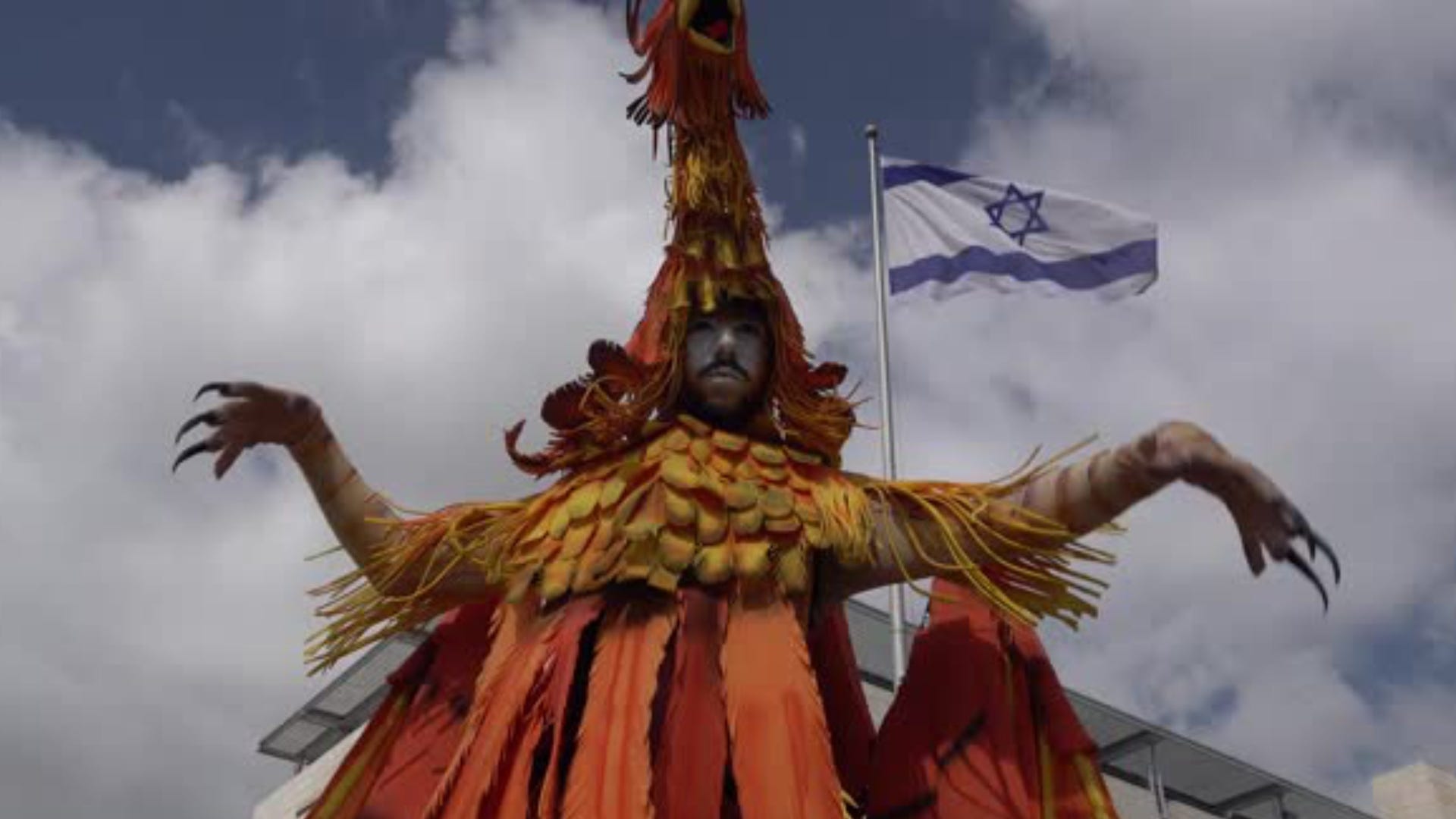
Purim celebrations begin amid cease-fire talks in Israel-Hamas war
The Jewish holiday of Purim, a time of joyous celebration traditionally commemorating survival, will be observed this year amid the Israel-Hamas war.
Saturday is Purim, a Jewish holiday commemorating the salvation of Jews from genocide in the ancient Persian Empire.
The holiday celebrates the biblical Queen Esther, who saved the Jewish people from extermination at the hands of Persia's anti-Semitic prime minister.
Nowadays, the holiday is celebrated by giving gifts, helping the poor, and feasting. Jewish children dress up in costumes, often representing characters from the story of Esther.
Here's what to know about the Jewish holiday, including how it's celebrated, what it commemorates, and its special hamandashen cookies.
When is Purim in 2024?
Purim is celebrated on the 14th day of the Hebrew month of Adar in late winter or early spring. This year's celebration will begin on Saturday, March 23 and continue until Sunday, March 24.
What does the holiday celebrate?
The holiday originated from the story of Esther in the Hebrew Bible. The story tells of Haman, the anti-Jewish prime minister in Persia, convincing the king to issue a decree to exterminate all Jews.
Mordecai, the leader of the Jews, defied Haman and told the Jews to repent, fast, pray, and come together to defend themselves. The king's wife, Esther, was Jewish, but did not tell the king. When she reveals her identity to the king at a banquet, he hangs Haman.
Mordecai became the next prime minister and after the king issued a decree giving the Jews the right to defend themselves from their enemies, he led his Jewish army to kill many of their enemies. They rested on the 14th day of Adhaar.
What does Purim mean?
Purim translates to “a lot” in Persian. The holiday was named after Haman held lotteries to determine which day he would carry out his genocidal plot.
How is the holiday celebrated?
One of the holiday traditions is reading the Book of Esther and the story of Haman's failed plot the day before and on the holiday. Children are encouraged to say “Boo” every time Haban's name is mentioned in the story telling.
According to chabad.orgOther traditions include giving money to at least two poor people, sending someone a gift of two kinds of food, and a festive feast.
Children are encouraged to dress up in costumes – usually representing characters from the story – to blend into the festive atmosphere of the holiday. Although some compare the holiday to Halloween, some may find it offensive due to the significance of the holiday.
“Purim is a profoundly selfless celebration—gifts are given not only to friends, but also to those most in need.” Rabbi Mordechai Lightstone told USA TODAY. “It's a celebration of life and finding the sacred even in the most hideous moments.”
What to eat at a Purim feast?
Hamantashen cookies are eaten regularly on Purim. The three-cornered cookie refers to Haban's three-cornered hat America Today. It usually includes a fruit, but savory and sweet options are also made.